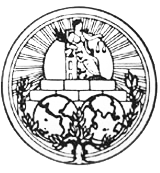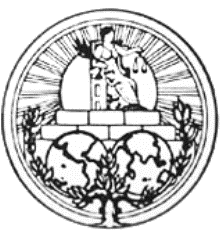The International Court of Justice (ICJ) decided on 05.12.2011 that Greece has breached its obligation under article 11 of the Interim Accord. The ICJ’s decision was followed by the UN mediator’s Matthew Nimitz’s invitation, to resume dialogue between the two countries after almost a year of inaction. What strategy should Greece follow from now on? On this occasion, ELIAMEP organised a public debate on 10.01.2012 entitled: “The future of relations between Greece and the former Yugoslav Republic of Macedonia: What’s next?”. Speakers on this debate were Dr. Evangelos Kofos, Special Advisor of ELIAMEP and former Advisor on the Balkans of the Greek Ministry of Foreign Affairs, Mr. Alexandros Mallias, Ambassador ret. and Special Advisor of ELIAMEP and Mr. George Koumoutsakos, Member of the European Parliament. Dr. Thanos Dokos, General Director of ELIAMEP moderated the discussion.
The ICJ Judgement changes the landscape and tranfers Greece’s strategy from the sphere of international law to that of politics. Although it condemns Greece for its position in Bucharest, it does not refer to the so-called ‘name dispute’, but urges for a settlement within the UN. It is therefore of great importance that the Greek side underlines once more the real nature of the question , which is not only about the name “Macedonia” and its derivatives, but also involves sensitive matters of national identity for FYROMs residents as well as for residents of the Macedonian region in Greece. The name issue is also related to the way that history is being used and it should end a deliberate distortion of historical data, aiming to create a “national myth”. It should finally put an end to the ireedentist aspirations which undermine the good neighbour relations as well as the European prospect of the region. Greece’s standing positions remain the same as in 2007, when they were originally adopted, for “one appelation with a geographical qualifier erga omnes” with the support of the neighbour countries in the framework of the European perspective of Western Balkans.
Greece’s strategy in Bucharest was ambivalent as it drove to its conviction from ICJ, creating at the same time an acquis, which now remains consolidated. FYROM’s entry to NATO and the EU has been connected with a solution to the name dispute. It is therefore important to maintain and support this acquis, with a view to the forthcoming NATO Summit in Chicago. Although there seems to be no harm caused due to the Bucharest decision, it is necessary that Greece is properly prepared in case FYROM’s allies raise this issue in the Summit. The formation of a working group within the Greek Ministry of Foreign Affairs, with the collaboration of scientific specialists, could effectively supportGreece’s new strategy in regard to the name issue. Finally, Greece’s position regarding the ‘Interim Accord’ of 1995, which sentenced Greece, is of great importance. Although there is a consensus in the fact that the Interim Accord is problematic, the denouncement of the Accord by Greece would only be meaningful if it was in the context of a completed and long-term foreign policy strategy on this issue and not as a reaction to Hague’s negative result.
A strategy like this aims to preserve Greece’s negotiating positions in order to reach a compromise with respect to both sides and it would result to a final Accord which will be able to replace the 1995 one within 12 months, as provided under the articles of the existent Interim Accord, putting an end to the name issue.




